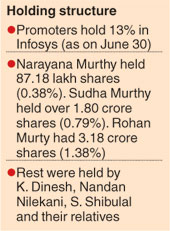
New Delhi, Sept. 11: The Regional Comprehensive Economic Partnership (RCEP) agreement that India along with China, Asean and other countries were hoping to conclude this year is unlikely to come about because of differing bargaining positions.
The RCEP, which covers countries who together account for half the world's population, was seen by the Obama administration as a challenge to the Trans-Atlantic treaty (now junked by Donald Trump) and was expected to be concluded two years ago.
Indian officials said each country had its own agenda and this "was creating a logjam of sorts" .
India's demands include talks on trade in services, including movement of people. However, virtually all other negotiators have sought deeper cuts in customs tariff lines before any concessions on services.
India has signed FTAs with all RCEP nations, except China and Australia, both playing hardball in their free trade negotiations. Australia, which at one time said they were just eight weeks away from signing an FTA, are still "engaged" in talks with New Delhi.
Indian officials feel the real reason for the delay is Australia's desire to first find out India's concessions to the RCEP. Australia wants India to cut duties on agricultural imports as well as better terms for its financial services sector.
Last month, Australian foreign trade minister Steven Ciobo, on a trip to India, said he was looking for a "quality deal which is a win-win for all and helps facilitate trade and investment".
India does have the highest average tariff rate among RCEP countries along with the most protected agricultural market. However, as a result of its FTAs with Asean, Japan and Korea, trade deficit has doubled over the last five years.
Also Indian business and government fear opening up to China, which already accounts for 45 per cent of India's massive trade deficit of $105 billion.
India is also trying to face up to demands by Australia, Japan and Korea for more restrictive patent laws which could make it tougher for India's generic drugs to be sold abroad. However, the inability to conclude a deal or being pushed out of a deal for being too obstinate is something India cannot afford as 30 per cent of India's total trade are with the RCEP nations.
For some countries RCEP is "the only game in town given the current negotiations of the TPP," said Philippine Trade Undersecretary Ceferino Rodolfo yesterday at Manila.
Economic ministers from the 16 nations were meeting in Manila as part of the 49th ASEAN Economic Ministers' Meeting and Related Meetings.The gathering was also the fifth ministerial meeting for the RCEP, for which negotiations began in 2013.











